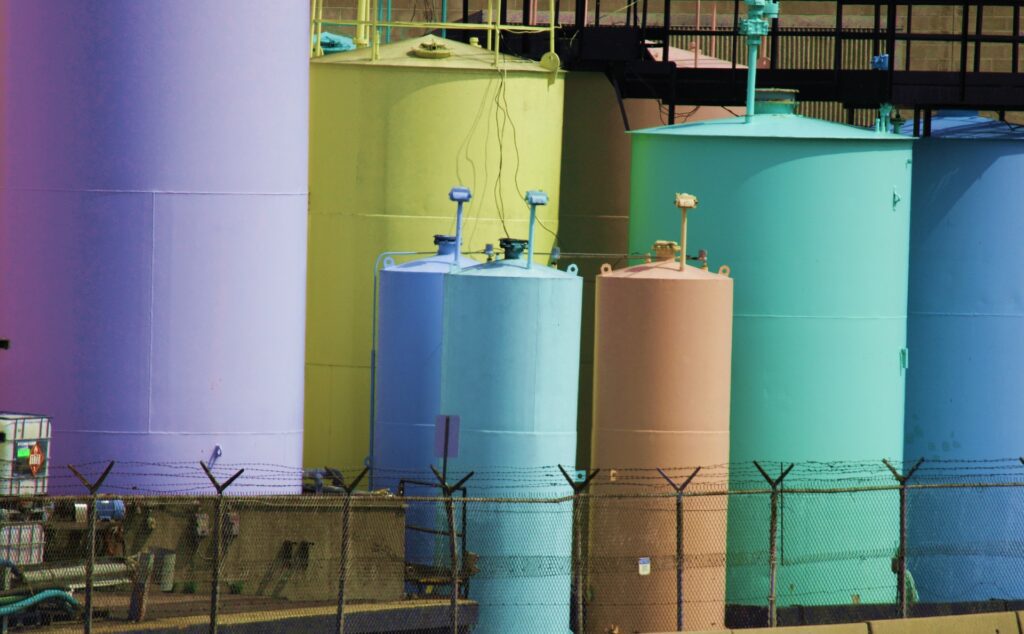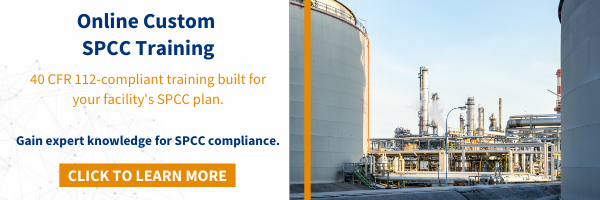If your facility is subject to 40 CFR 112 and is required to have a Spill Prevention, Control, and Countermeasure (SPCC) plan, understanding your compliance obligations for container integrity testing can be challenging.
40 CFR 112.8(c)(6) states that you must “test or inspect each aboveground container for integrity on a regular schedule and whenever you make material repairs.” The regulation requires integrity testing and inspection with the goal of ensuring storage containers are maintained in a state that will help prevent and detect spills.
Understanding whether or not your facility requires integrity testing and the options for performing integrity testing can be confusing, as the guidelines are not as straightforward as might be expected. However, failure to comply can result in hefty expenses from possible fines, clean-up costs, lost time, temporary loss of land use and impacts to property value.
Does Your Facility Require SPCC Integrity Testing?
Many facilities maintain above ground storage tanks (ASTs) associated with diesel fire pumps and emergency generators; and/or bulk oil for both new product and used oil in ASTs, drums and totes.
If the total on-site storage of containers and equipment of 55-gallons or greater capacity surpasses 1,320 gallons, a facility is subject to the SPCC regulations as well as the integrity testing and inspection requirements that are part of these regulations.
SPCC Integrity Testing and Inspection Options
If your facility requires SPCC integrity testing and inspections, the method you choose for compliance can vary. The most straightforward and compliant option is to use one of the two industry standards referenced directly in the regulations: API 653 or STI SP001.
American Petroleum Institute (API) 653 Standard
The API 653 standard covers a wide array of small to very large field-erected and shop-built ASTs. This standard relies heavily on certified internal and external visual and nondestructive testing inspections. These inspections are done in intervals as small as five years, and completion of monthly visual inspections by the owner-operator of the facility is required.
It is important to note that double-walled tanks and portable containers are not covered in this standard.
Steel Tank Institute (STI) SP001 Standard
The STI SP001 standard focuses primarily on shop-built tanks and also provides inspection criteria for portable containers. Under this standard, the tank system design and controlled environment for (shop-built) tank fabrication heavily influence the formal internal and external inspection interval. Formal inspections can be conducted on 20-year intervals if certain criteria are met.
Monthly and annual visual inspections by the owner-operator are also required to maintain compliance. Owner-operator inspections need to be completed by a person familiar with the tank system. With proper training, these monthly inspections can be performed by facility maintenance or EHS staff.
Understanding Your Tank System
Understanding your tank system and container storage is an integral step in determining the appropriate standard to follow. Assessing the tank system includes factors such as size, secondary containment, overfill protection, release prevention and release detection. These must all be considered in determining when and how integrity testing and inspection will be done, as well as who will be performing it.
Common storage tank set-ups, such as double-walled tanks or elevated single walled ASTs sitting in secondary containment are prime candidates for an STI SP001 based integrity testing program. In contrast, large ASTs erected onsite may be better suited for the API 653 standard.
Get SPCC Support
Integrity testing requirements can be just one of the challenging aspects of SPCC compliance, especially since industry standards are referenced in lieu of a more straightforward, itemized to-do list.
Your facility’s SPCC compliance is only as good as the SPCC plan you have on hand, the inspection program you implement and the training you have received. Reach out to Tetra Tech’s SPCC experts at [email protected] for support. We can help you choose the right integrity testing and inspection program, strengthen your SPCC plan and train your personnel.






